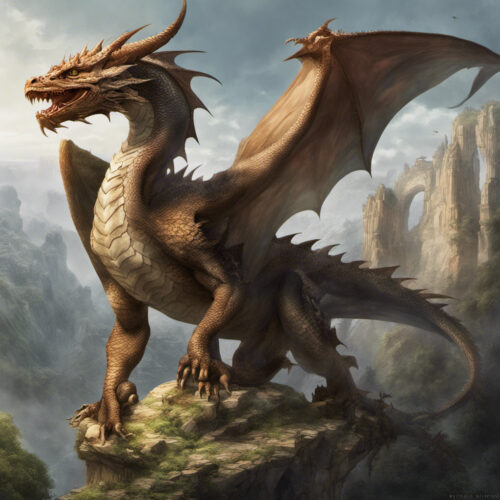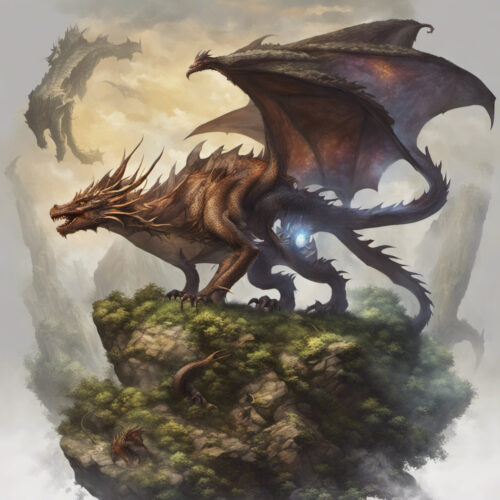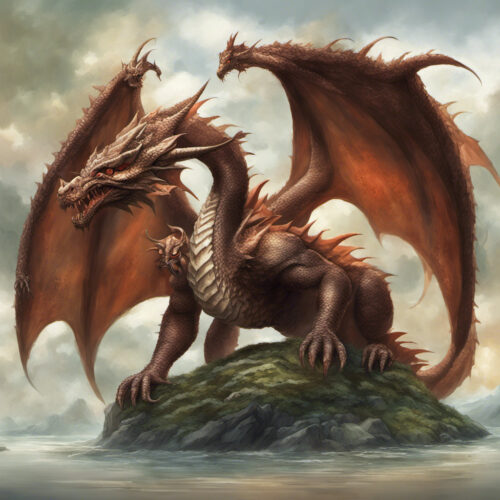Dragons have captured the fascination and imagination of people for centuries. These magnificent creatures portrayed in various literary works have not only ignited our imagination but also enriched our understanding of fantasy and mythology. In this comprehensive guide, we will delve into the enchanting world of dragonlore found within the pages of books, exploring their history, origin, characteristics, and their significant presence across different cultures.

The Origins of Dragonlore
The origins of dragonlore can be traced back to ancient civilizations like Mesopotamian, Egyptian, and Chinese, where these mythical creatures were revered and feared simultaneously. They represented power, wisdom, and often symbolized chaos or destruction. These powerful archetypes have transcended time and geographic boundaries, leaving their footprint on legends, folklore, and literature.
The Dragon’s Role in Mythology
As we explore the dragon’s role in mythology, it becomes apparent that their presence is woven into the fabric of countless cultures. From the fiery dragons that guarded treasures in European folklore to the benevolent dragon deities that brought rain and fertility in Asian cultures, dragons have held multifaceted roles.
The Literary Allure of Dragons
Dragons have found a lasting home within the pages of numerous books, captivating readers of all ages. Authors like J.R.R. Tolkien, Ursula K. Le Guin, and Christopher Paolini have created rich dragon lore that continues to captivate readers even today.
One must-read book for any dragon enthusiast is “Dealing with Dragons” by Patricia C. Wrede. The story revolves around Princess Cimorene, who finds herself becoming a dragon’s princess rather than the conventional human princess. This delightful tale challenges traditional fairy tales featuring dragons, offering a fresh perspective on these mythical creatures. Learn more about the book.
The Diversity of Dragon Books
Dragon books come in various genres, catering to diverse interests. From epic fantasy adventures and children’s picture books to dragon-romance novels and scientific analyses of dragon behavior, there is a dragon book for everyone.
The Influence of Dragons in Popular Culture
Dragons have left an indelible mark on popular culture as well. They have become a staple in movies, TV shows, video games, and even board games. One iconic example of dragon in popular culture is the critically acclaimed HBO series “Game of Thrones,” which prominently features dragons as integral components of the storyline. Discover more about the series here.
Mysteries of Dragons Untangled
While dragons remain mythical creatures of fantasy, enthusiasts have often contemplated their existence. Some attribute the similarities across cultures to ancient tales spreading through trade routes, while others seek scientific explanations for mythological creatures.
Intriguingly, cryptozoology, the study of hidden or unknown animals, has also explored the possibility of hidden dragon populations across the world. The Loch Ness Monster, for example, bears similarities to dragon legends, inspiring a sense of wonder and mystery.
Dragon Symbology and Spiritual Connections
Dragons have often been associated with spiritual symbolism, representing courage, wisdom, protection, and transformation. In various belief systems, dragons embody forces of creation and destruction, acting as intermediaries between realms.
Exploring the Realms of Dragonlore
For those seeking to immerse themselves further in the world of dragons, there are numerous resources available. Online communities, such as Dragon Forums and Dragon Lovers Club, offer platforms for enthusiasts to connect, share stories, and discuss their favorite dragon books.
Unleash Your Imagination
As you embark on your journey into the world of dragonlore through books, keep in mind that dragons are not merely mythical creatures, but embodiments of our collective imagination. They inspire us to dream bigger, confront our fears, and explore new horizons both within and outside the realm of literature.


